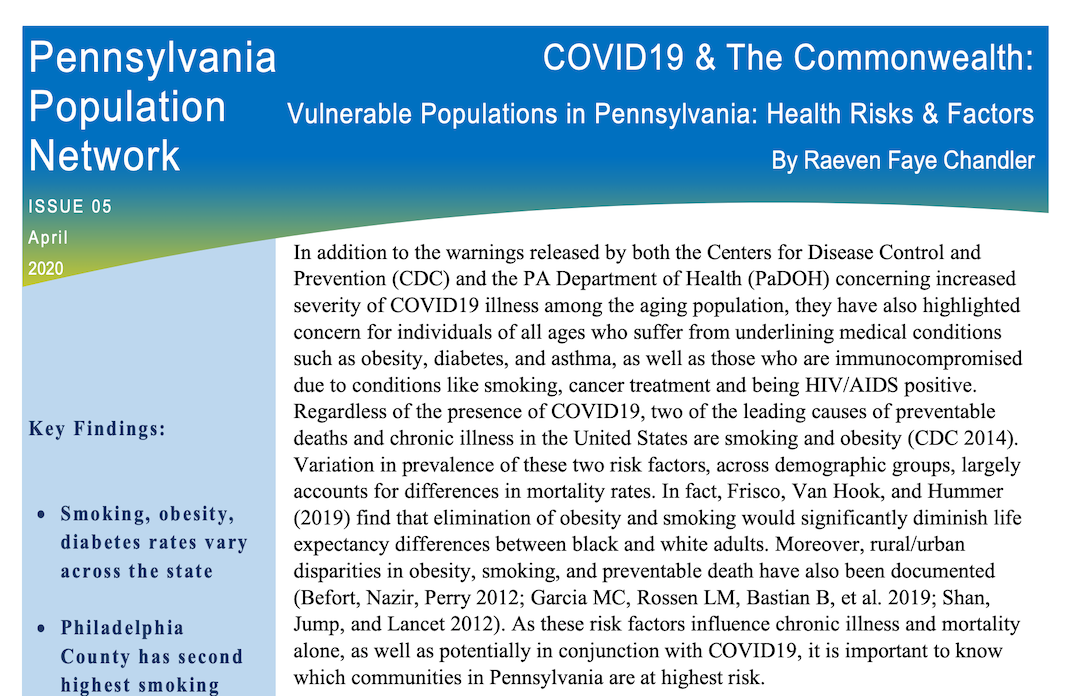
Many Pennsylvania residents are facing an increased risk for severe symptoms of the novel coronavirus, while having limited access to medical services, and policy briefs from Penn State’s Pennsylvania Population Network (PPN) demonstrate why.
Raeven Chandler, assistant research professor and director of the PPN at Penn State, recently published a new brief, COVID19 & The Commonwealth: Vulnerable Populations in Pennsylvania: Aging. Important key findings explain population characteristics of Pennsylvania that identify potential risks and resource needs during the COVID-19 pandemic.
The brief reports several important statistics, such as the median age of Pennsylvanians is 40.7 years and is one of the highest in America, and over 23% of residents are at least 60 years old. Chandler said this is important to consider as older people infected with COVID-19 are more likely to need medical intervention.
“I was surprised to see how much of the state suffers from health professional shortages, regardless of rural/urban classification of the location,” Chandler said. “Although I was aware that Pennsylvania was a state with a significant proportion of elderly residents, it was eye opening to see just how much of our state is considered high risk due to age.”
With a higher median age, Pennsylvania may see an increased demand of ICU beds during the COVID-19 pandemic. The brief draws attention to 11 Pennsylvania counties that report having no ICU beds, and seven of those counties are without a hospital.
“Large-scale health issues like this highlight, and at times magnify, holes in existing infrastructure,” said Chandler. “Although Pennsylvania has fared better than other states, there is a national trend in rural hospital closure; this could increase distance traveled to access healthcare for rural individuals, which can be doubly difficult if individuals cannot drive themselves. Facilities that do remain may be understaffed or under equipped to deal with critical care issues en masse.”
The newest brief, COVID19 & The Commonwealth: Vulnerable Populations in Pennsylvania: Health Risks & Factors, suggests that even minimal increases in positive cases could be taxing to Pennsylvania infrastructure.
These findings provide certain policy implications and point to where change may be needed. Chandler said that understanding this research may help communities better prepare for future demand of resources.
“I'm hopeful that policymakers will see these issues as needing attention even in noncrisis times,” said Chandler.
The PPN is part of the Population Research Institute at Penn State and was established with funding from a Penn State Strategic Initiative Seed Grant and the Social Science Research Institute.